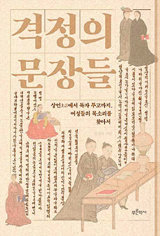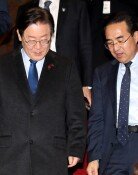Women ahead of their time held their brush
Women ahead of their time held their brush
Posted November. 19, 2022 07:24,
Updated November. 19, 2022 07:24

In 1899, Chanyanghoe, a group of women living in Bukchon near Gyeongbokgung Palace in Seoul made an appeal. They hung a white cloth, saying, "A husband having two wives is against morality as well as an act of losing his integrity," on a pole and set it up near Deoksugung Palace. Next to it, about 50 women in their 30s and 40s sat down and shouted, "His Majesty (King Gojong) should get rid of his concubines first."
Joseon society had the concubine system. During that period, women were not able to express their dissatisfaction directly. Therefore, the public protest, saying that having a concubine was against morality, was a direct challenge to a patriarchal society. The protests were staged for more than a week, from 10 a.m. to 6 p.m. every day.
The author, a professor at the Humanities and Sciences Institute under Ewha Womans University, analyzes peoples’ complaints to kings in the Joseon Dynasty and newspaper opinion pieces written by readers during the modern enlightenment period to shed light on the voices of women who had actively called for soundness of our society. And this breaks the passive female stereotype in a patriarchal and Confucianist society.
The women in the book are not historically famous, but they are not intimidated by their situation and actively write to solve the problem. According to Ilseongrok, which recorded state affairs, there were a total of 4,427 complaints during the reign of King Jeongjo (1776-1800). Of these complaints, 405 were raised by women. Their class ranged from yangban, commoner, Korean geisha, and female slave. Most of the complaints were day-to-day issues about property, family, and heirs.
During the modern enlightenment period, newspapers gave public meaning to women's voices. A case in point is the "circular of girls’ school," written by those who identified themselves as " Bukchon’s women of virtue" in 1898. In the same year, this circular claiming the need for girls' schools and women's rights was published in the Hwangseong Newspaper's special report and the Independent. In 1899, a woman who identified as a widow posted an article in the Jeguk Sinmun criticizing the custom of preventing the remarriage of women. The author said, "A silent voice erupted. But just because it hadn’t surfaced before doesn't mean it wasn't there. We need to revive their words and give them historical meaning."
beborn@donga.com







